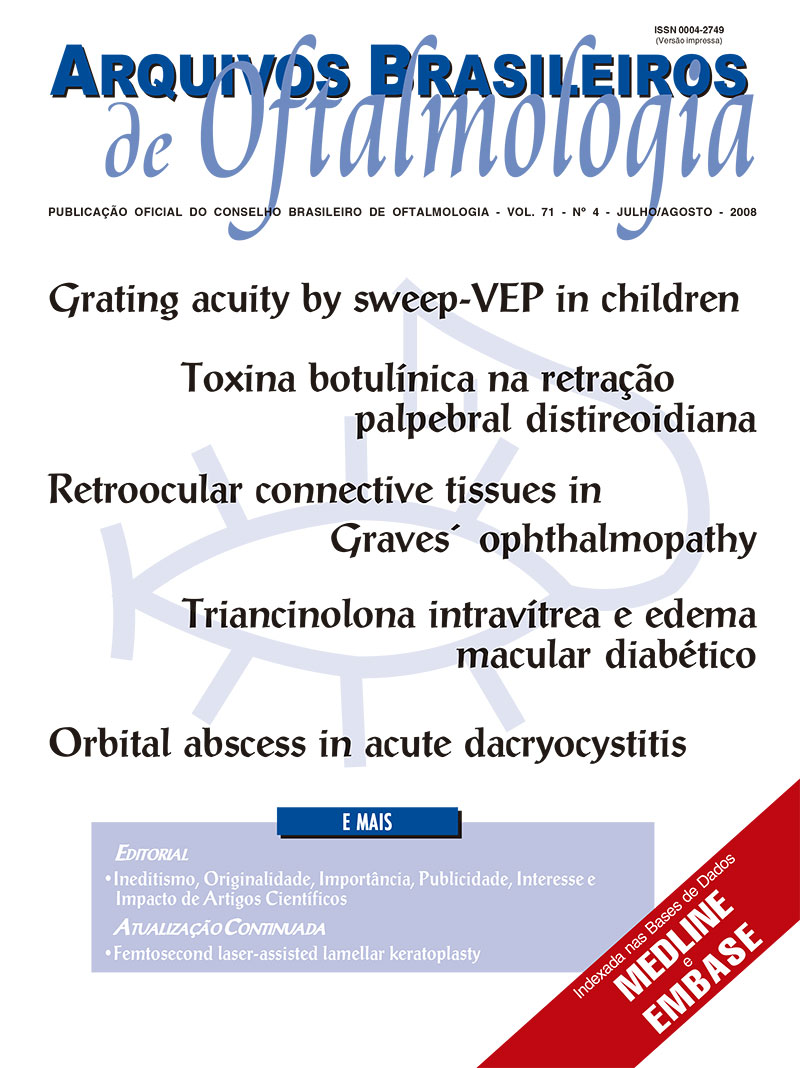PURPOSE: To evaluate the effectiveness of mitomycin C (MMC) in preventing recurrence of pterygium following conjunctival autograft transplantation (CAT). Ki-67 antigen to evaluate epithelial cell proliferation and fibroblast nuclear kariometry were used to assist treatment evaluation. METHODS: Twenty-nine patients with recurrent pterygium were divided into three groups: Group (G) 1 - CAT and placebo eyedrops (PED); G2 - CAT, 0.015% MMC subconjunctivally, and PED; G3 - CAT and 0.02% MMC eyedrops. Immunohistochemistry for the Ki-67 antigen and fibroblast nuclei kariometry were performed on the excised tissue, divided into nasal and temporal sides. Kariometry was evaluated in terms of volume (Vl) and area (Ar) using at least 50 cells/patient. RESULTS: The percentage of positive epithelial cells for the Ki-67 antigen on the nasal and temporal side after treatment of the three groups were: nasal (5.39% G1, 4.49% G2, and 3.88% G3); temporal (3.30% G1, 4.46% G2, 4.14% G3), did not show significant differences. Fibroblast nucleus kariometry was: nasal Vl (792.1 µ3 G1, 605.1 µ3 G2, and 549.9 µ3 G3) and Ar (100.58 µ2 G1, 83.13 µ2 G2, and 78.41 µ2 G3). The three groups showed significant differences: p=0.039 and p=0.035, for respectively Vl and Ar, on the nasal side. After a six month of treatment, the three groups presented the following recurrence rates: G1, 22.22%, G2, 18.18% and G3, 33.33%, respectively. CONCLUSION: MMC did not reduce the number of positive epithelial cells for the Ki-67 antigen in recurrent pterygium, but decreased fibroblast nucleus volume and area on the nasal side of the pterygia. The number of positive epithelial cells for the Ki-67 antigen seemed not to be related to pterygium recurrence observed over a six-month post-surgery period. The role of epithelial cell proliferation in pterygium recurrence should be evaluated by further studies.
Keywords: Ki-67 antigen; Pterygium; Recurrence; Mitomycin; Epithelial cells; Fibroblasts; Karyometry
